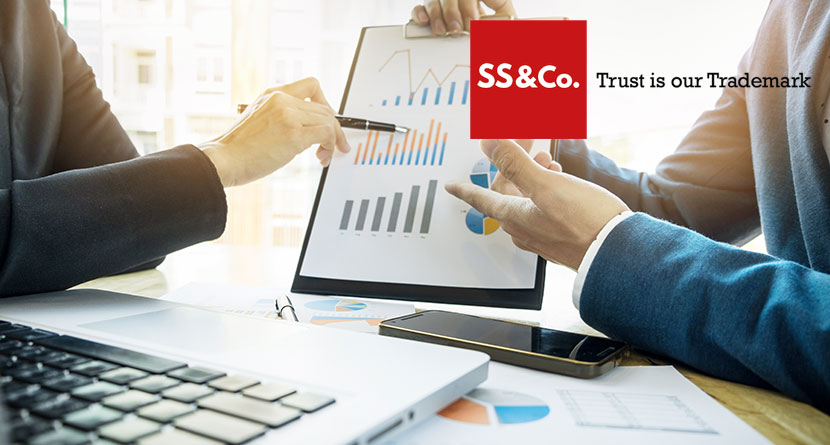Registering for excise tax in UAE may seem like a technical procedure, therefore we’ve simplified it for you step by step. This guide explains what triggers the requirement to register, how to complete the registration, which documents you will need, what compliance steps follow, and why working with one of the best chartered accountant firms makes the process faster and safer.
Who must register and why?
Any business that imports, produces, stores or releases excisable goods in the UAE must register for excise tax in UAE with the Federal Tax Authority. The law targets specific goods such as tobacco products, energy drinks, and carbonated drinks because the government applies selective consumption taxes to protect health and the environment. Companies that handle designated goods must obtain an excise tax registration number and then file regular excise tax returns. The Federal Tax Authority confirms that registering is mandatory for businesses that produce, import, or store excisable goods.
How to start the registration process for excise tax in UAE?
Begin by creating an EmaraTax account on the Federal Tax Authority portal. The portal is the official channel to register for excise tax in UAE, to submit applications, and to file returns. You must establish an account using the company’s details, nominate authorized signatories, and prepare supporting documents. Once the account is active, add a taxable person profile and choose the excise tax registration option to begin the formal application. The FTA e-Services portal is the place to start and manage your excise tax registration.
Information and documents required by FTA when you register for excise tax in UAE
Companies are expected to provide details and identification documents of their key persons based on the submitted documents as having been validated by the FTA. The standard documents may, however, include: the current and valid trading license indicating the trading activity, passports and Emirates IDs of owners and directors, customs registration certificate if the company is importing or exporting excisable goods, and the bank account details. You should also supply records about stock, production lines, and product classifications. The more accurate and organized your documentation, the fewer follow-up requests you will receive from the authority. The official excise tax registration user guide has a stepwise checklist and it also includes screenshots in order to guide the submission.

How to classify goods and determine whether excise tax in UAE applies.
Classification is essential because not all goods face excise tax in UAE. Identify whether your products fall into the legislated categories by comparing product composition and function against the excise schedules. If your products are mixtures or new formulations, prepare a technical dossier that supports the product classification. Correct classification at the registration stage reduces compliance risk and the chance of penalties later.
The step-by-step submission and post-submission expectations
After you complete the online application for excise tax in UAE, the FTA reviews the submission. The official processing estimate for a completed application is typically up to twenty business days, although the time can vary if the FTA requests additional documents or clarifications. If your company operates within a designated zone or runs a manufacturing line for excisable goods, the FTA may ask for more technical evidence about facilities and processes. Keep all records ready to avoid delays and track the application through your EmaraTax dashboard.
How payments and returns work once you are registered for excise tax in UAE
Once registered, a taxpayer should submit excise returns at the times laid down by the FTA with an accompanying payment of the due tax through the EmaraTax payment channels. The return must declare taxable volumes, the taxable base, tax due, and if applicable adjustments for zero-rated or exempt supplies. The FTA has provided a standard return template in EmaraTax and also incorporated electronic payment methods. Many businesses reconcile excise calculations monthly with inventory movements and customs entries so the declared volumes match physical stock movements.
Penalties
The UAE tax system includes administrative penalties when registration, return filing or payment deadlines are missed. Penalties vary by the breach and can be significant; they aim to ensure timely compliance. If companies miss a deadline, they can still correct the omission and ask the FTA for consideration, but this does not remove the need to file accurate returns. In certain limited circumstances and where specific criteria are met, penalty relief or waivers are possible, but these are exceptions and not the normal outcome. The government has published guidance on penalties and on limited waiver measures; companies should treat deadlines as binding and remediate any miss promptly.
Practical tips to make the registration for excise tax in UAE
Plan the registration around your operational flows and customs arrangements. Store consolidated documents in a safe, shared folder together with product descriptions that conform to the customs codes. Appoint a primary contact person to oversee the EmaraTax account. Check testing of internal reporting systems so that the entries of excise taxable quantities put into production are reflected in the accounting entries. If there are members of your team without experience regarding excise, consider engaging one of the top chartered accountant firms who cover full services for excise tax, from registration down to the advisory.
How SS&Co helps?
SSCOGLOBAL helps clients register for excise tax in UAE and builds systems, so ongoing compliance is reliable. We map your supply chain, prepare the registration submission, and implement simple templates for excise reporting. The best chartered accountant firms adopt a project approach: they collect documents, prepare a complete EmaraTax application, anticipate the FTA’s likely questions, and then implement the accounting entries and controls you need for returns. That combination removes the administrative burden from your operations team and reduces the risk of late filing or incorrect declarations.
Final thoughts and next steps
Registering for excise tax in UAE is a mandatory and administrative task for businesses that deal with designated goods. The technical requirements are straightforward, the application is online through the FTA, and support is available both from the authority’s user guides and from private advisers. If you handle excisable goods, take action now to create your EmaraTax account, gather the required documents, and evaluate whether a partnership with one of the best chartered accountant firms will add value. SS & Co provide you with advice on your operations, help you prepare the application, and manage the filing process so that you may concentrate on your compliance and business growth.




